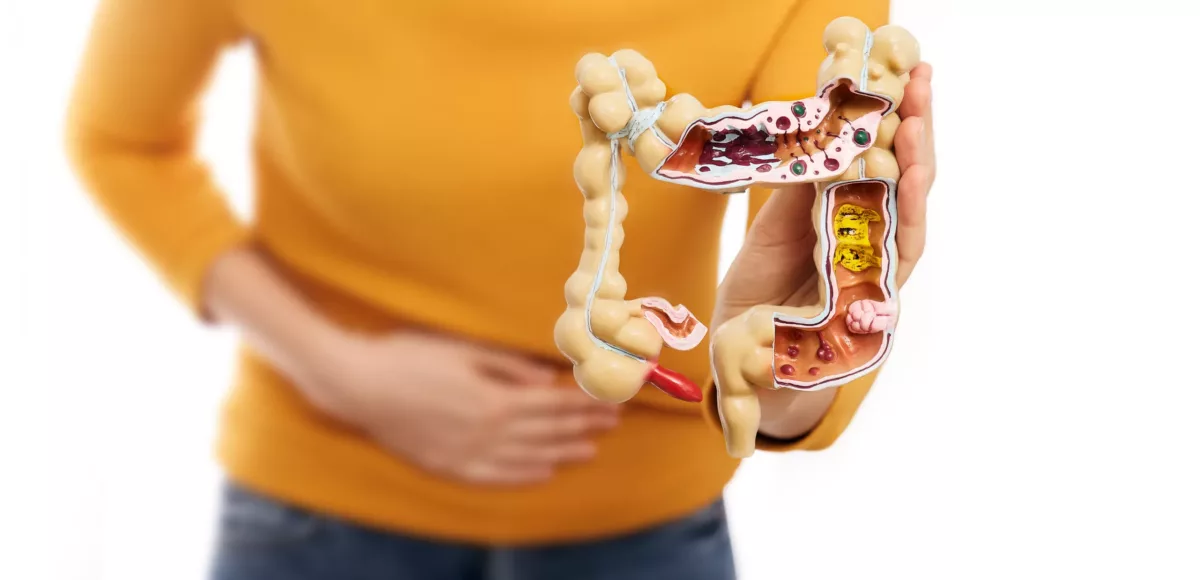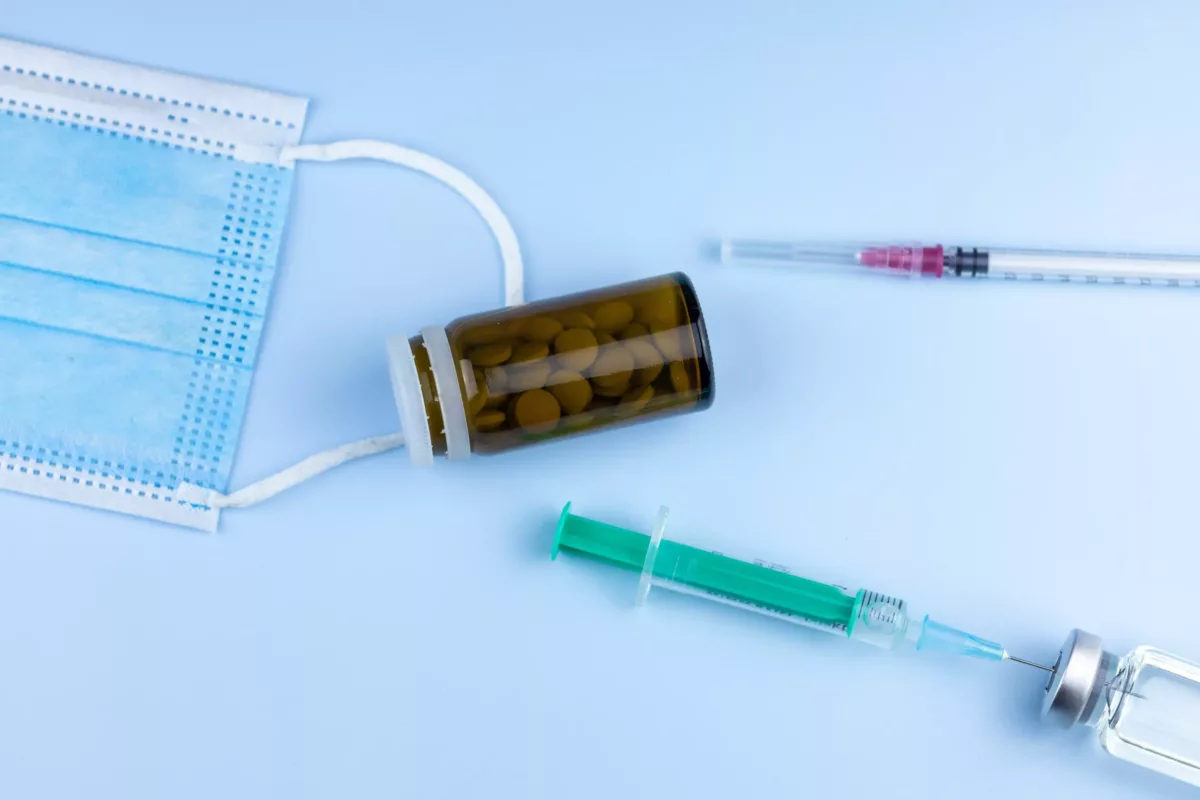Inflammation and irregular bulging pouches that occur in the large intestine wall are caused by a condition called diverticulitis. In normal circumstances, the large bowel (also known as the colon) wall is smooth. If a bulging and irregular pouch occurs in the wall of the colon, it is called a diverticulum. However, when multiple pouches develop, they are called diverticula.
This health problem usually occurs in people over 50 years old and in the lower colon part. In most cases, it does not cause problems. In such cases, it is called diverticulosis, and it is not considered a disease.
However, when the pouches become inflamed, the condition begins, and it is called diverticulitis. Swelling (inflammation) usually happens due to an immune system reaction. It produces disease-fighting cells (also known as antibodies) that go through the bloodstream to these pouches. People with diverticulitis usually experience the following symptoms. These include severe pain, fever, stool habit changes, and nausea.
While mild forms of diverticulitis are treated with rest and dietary changes, in severe cases, people require antibiotics and treatment in the hospital. Moreover, physicians may recommend surgery to treat the condition in people with recurrent or severe diverticulitis.
Symptoms
The most common symptom of this condition is abdominal (belly) pain that usually occurs in the left lower part. In most cases, the pain caused by diverticulitis occurs suddenly and is intense. Over time, the pain caused by diverticulitis may worsen. Check below for additional diverticulitis symptoms:
- Fever
- Nausea
- Abdominal tenderness
- Stool changes (such as constipation, sudden diarrhea, and others)
It is advised to seek medical care immediately if you experience unusual abdominal pain, stool habit changes, or fever.
Causes
A diverticula usually develops in older people in the large intestine walls. It usually happens due to pressure in the colon (including spasms or straining). Mostly, a diverticula appears in the region where the large intestine is weak.
This condition (diverticulitis) appears when inflammation of one or more diverticula occurs. Some people experience this condition due to bacterial infection, damage to the diverticula tissue, and others.
Risk Factors
Usually, this condition occurs in older people (over 50 years old) because the intestinal tissue may become weak as a normal aging part. Check below for other factors that elevate your risk of developing diverticulitis:
- Obesity
- Smoking
- Lack of physical exercise
- Misuse of alcoholic drinks
- Reduced vitamin D levels
- Some medications include steroids, opioids, nonsteroidal anti-inflammatory drugs (NSAIDs) such as Ibuprofen, Acetaminophen, Naproxen sodium, and others
- A diet low in fiber and high in red meat
What Are The Potential Complications of Diverticulitis?
Approximately 15% of people who suffer from this condition develop complications. Check below for some of them:
- Fistulas (irregular passageways between the intestine and other organs)
- Diverticular hemorrhage (bleeding caused by ruptured blood vessels)
- Tears in the large intestine may lead to a serious health condition of the belly (abdomen) lining. This condition is called peritonitis.
- Large intestine blockages
- Abscess (a pocket of pus often caused by a bacterial infection)
This article does not contain all possible complications of diverticulitis. For more details, discuss it with your doctor.
How to Prevent Diverticulitis?
There are some tips that may help reduce the risk or even prevent diverticulitis. Examples include:
- Regularly perform physical exercises (it is advised to aim for at least 30 minutes of physical exercises per day).
- Adopt a high-fiber diet full of fresh fruits, vegetables, whole grains, seeds, and beans. Try to limit the consumption of red meat and processed foods.
- Try to get and maintain a healthy weight because excessive body weight and obesity increase the risk of multiple health conditions, along with diverticulitis.
- Drink plenty of fluids to prevent dehydration. Otherwise, you are at an increased risk of experiencing constipation.
- Quit smoking and limit or avoid alcoholic drinks. Furthermore, heavy alcohol drinking is often associated with diverticulitis.
Formerly, physicians recommended that people with diverticulitis avoid nuts, seeds, and popcorn. However, some recent studies have shown that nuts and seeds are a good source of fiber and these foods do not increase the risk of diverticulitis.
Diagnosis
Sometimes, it is difficult to diagnose this condition because there are multiple diseases that cause abdominal pain. Physicians will perform a physical examination to check for symptoms linked with diverticulitis. However, they may also perform some tests to confirm the condition. The following tests may also help exclude other diseases that cause similar symptoms. For example:
- Urine and blood tests (these tests are done to check for immune system activity and infections)
- Pregnancy test
- Liver enzyme tests to exclude liver diseases
In addition, doctors may also perform a CT (computerized tomography) scan to determine the location and size of the inflamed diverticula, abscesses, and other complications.
Treatment
Treatments for people with diverticulitis are usually different because it depends on the severity of the disease, your age, overall health, and other factors. Check below for some of them:
Uncomplicated Diverticulitis
In such cases, the condition causes mild symptoms without complications, and it is called uncomplicated diverticulitis. Furthermore, mild diverticulitis symptoms can be treated easily at home. Mostly, physicians recommend a liquid diet. You can add solid food to your diet when the symptoms begin to improve. When the symptoms go away, you can return to a high-fiber diet.
Sometimes, doctors prescribe antibiotics. Follow the treatment exactly as prescribed by your doctor (even if you feel better).
Complicated Diverticulitis
People with severe symptoms and complications usually need to get treatment in a hospital. Treatments usually involve intravenous (IV) antibiotics and surgery.
Surgery
This procedure is usually required by people with diverticulitis in the following cases. For example:
- Serious complications caused by diverticulitis (including ruptures in the large intestine wall, fistulas, or tissue damage)
- Recurrent uncomplicated diverticulitis
- Weakened immune system
In general, there are two procedure types to perform the surgery to treat diverticulitis. One of them involves small incisions in the abdomen (also called laparoscopic surgery), and the second is performed through one but large opening.
During the procedure, surgeons will connect healthy parts of the intestine to re-create the colon, but in severe cases, people require a specific bag that collects the waste from the intestines.
Additionally, some people may require other surgeries to treat diverticulitis complications, including peritonitis and fistulas.
Frequently Asked Questions
What are the causes of diverticulitis?
These include:
- A diet high in red meat and processed foods and low in fiber
- Weakened immune system
- Problems with connective tissue
- Certain medicines (such as steroids, opioids, NSAIDs, and others)
- Genetics
- Poor lifestyle habits (including smoking, lack of physical exercise, excessive body weight, and others)
How to self-treat diverticulitis?
Treatment includes:
- Drink plenty of fluids
- A diet high in fiber
- Over-the-counter (OTC) pain relievers (such as Ibuprofen)
- Antibiotics
- Supplements
- Rest
- Home remedies (including garlic, green tea, ginger, turmeric, and others)
Talk with your physician for more details.
What can be mistaken for diverticulitis?
There are multiple health conditions that can be mistaken for diverticulitis because they cause similar symptoms. These include:
- Appendicitis
- Crohn’s disease
- Irritable bowel syndrome (IBS)
- Bowel obstruction
- Ulcerative colitis
- Acute cholecystitis
- Epiploic appendagitis
- Ovarian cystic disease and others
This document does not contain all possible conditions that can be mistaken for diverticulitis. If you have additional questions, ask your healthcare provider.




